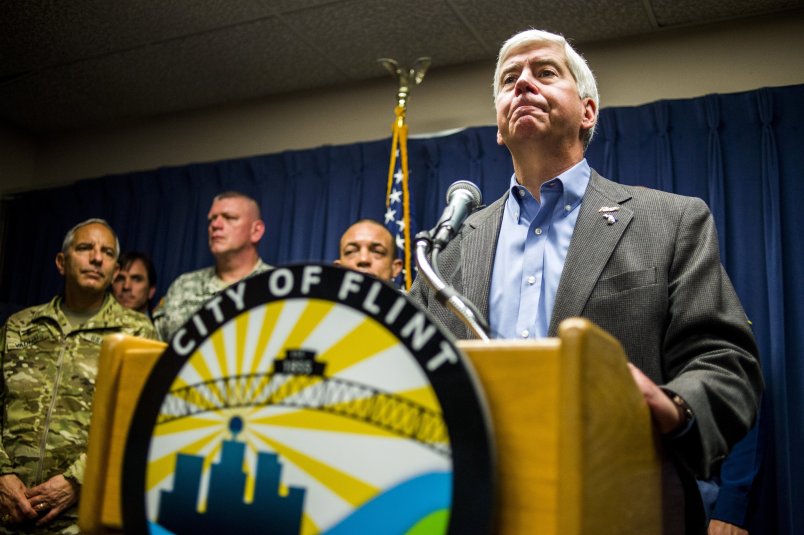FLINT, Mich. (AP) — The state of Michigan is “fundamentally accountable” for Flint’s lead-contaminated water crisis because of decisions made by its environmental regulators and state-appointed emergency managers who controlled the city, an investigatory task force concluded Wednesday.
The panel, appointed by Gov. Rick Snyder to review the disaster, said in a withering report that what happened in Flint is “a story of government failure, intransigence, unpreparedness, delay, inaction, and environmental injustice.”
“One of the biggest lessons we hope to impart in our report is the need for government leaders to listen to their constituents; in Flint that didn’t happen,” said Chris Kolb, co-chairman of the Flint Water Advisory Task Force.
Flint’s 2014 switch in drinking water sources led the supply to become contaminated when lead leached from old pipes into some homes.
While the investigators primarily blamed the state Department of Environmental Quality for the disaster — it initially did so in preliminary findings that led the agency’s director to resign in December — it also faulted a host of other government offices and officials for contributing to the fiasco or delaying action to fix it.
Those include the Michigan Department of Health and Human Services, the U.S. Environmental Protection Agency, the Genesee County Health Department, the city of Flint and financial managers that Snyder named to run the city of nearly 100,000 people.
The five-member task force interviewed 66 people during its months-long investigation and made a number of recommendations, including considering alternatives to the emergency manager system.
___
Eggert reported from Lansing, Michigan.
Copyright 2016 The Associated Press. All rights reserved. This material may not be published, broadcast, rewritten or redistributed.







This was the task force that Gov. Snyder asked to be put together. Is it any wonder then that the buck stops slightly below his office and onto the EFM, MDEQ, and all the other actors he personally put in place to help create this disaster for the residents of Flint? Only one person is left out of this “withering report” of assigning direct blame…and that is the Governor himself. If anyone is surprised by this, they haven’t been paying attention.
What an absolutely incompetent governor.
Countdown to Snyder pulling a Palin: “This report completely exonerates me and my staff from all responsibility…”
Snyder is a “hose bag.”
Sounds more like Krispy Kreme.